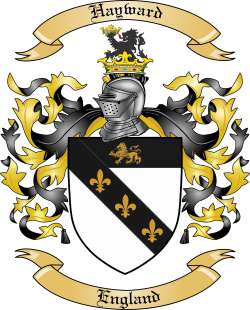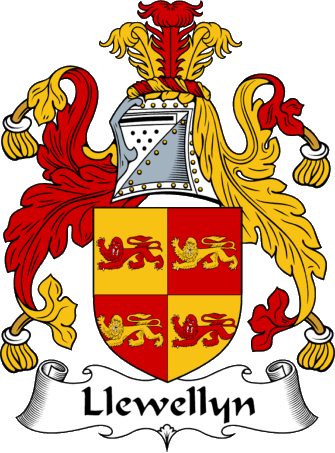The Arrowsmith Name

My Grandfather always used to say that the family name was originally Harrowsmith and the family manufactured Harrows for use on the farm, but I have never been able to find any proof of this.
The following derivations were gleaned from several sources.
1. The Guinness Book of names says that the Arrowsmith's were the makers of the arrow heads and Fletchers made the rest and assembled the arrows,
2. From a publication called "Monmouth Roots - The Arrowsmith Family" - this is about the N J Arrowsmith's, but probably applies to all of us (from the Internet):
"This name does not, as it may seem, denote derivation
from an ancestor who was a fabricator of arrowheads. It comes, rather from the
Frisian "Atteschmidt" (itself the equivalent of the German
"Ritter-Schmidt" or Knightssmith) which softened in to
Athersmith, became finally, the Arrowsmith of the present day. Originally it
denoted an armourer a class hat rated so high in the days of chivalry that its
members, by the very fact of their occupation, belonged to the lower orders of
nobility."
3. Neville Arrowsmith in 1990 traced the Athersmith name in Cumbria back to its
origins in the Midlands and from there have found links going back to the 1600,s
in Worcester where the name was recorded as Athersmyth,
4. From the Internet:
a) I have been told that the Arrowsmith were in fact the makers of the arrow heads and that the Fletcher family made the rest.
b) Arrowsmith: A maker of iron arrow tips.
c) Some of the variations of the name are apparent in the following origins: A Dictionary of British Surnames by P.H. Reaney gives these variants;
Arrowsmith,
Arsmith
Harrismith
Harrowsmith
Roger le Aruesmith
William le Arwesmyth
Richard Arsmith
A smith who makes arrows, especially iron arrowheads (1278 MED).
Harrismith and Harrowsmith are rare but exist side by side with Arrowsmith in Yorks and Lancs.
The Ballinger Name

From Bullinger - Baker (Latin - a Round Loaf)
Or Boulanger - French for Baker - name origin for the New Zealand Ballinger's is from the French word 'boulanger' which means baker. According to Esme Ballinger, the ancestors of the New Zealand Ballinger's were bakers from France who left for England after the Normandy evasion.
The German surname Ballinger had two distinct origins. Firstly, the surname Ballinger is of patriotic origin, deriving from the name of the father of the original bearer. In this instance, the surname Ballinger derives from the German personal name Baldo, which in turn derives from the Gothic "balds", the Old High German "bald" meaning "courageous, bright". Here, the surname Ballinger literally translates into "son of Baldo". Alternatively, the surname Ballinger is of toponymic origin, deriving from the name of the place, where the original bearer of the name once lived or held land. Here, the surname Ballinger derives from the cith of Balingen, which is located in the south western German. The city of Balingen, was probably founded by someone with the personal name Ball or Baldo. The ending "inger" is usually found being of patriotic origins meaning "coming from" a town or a family. The surname Ballinger and its variant forms of Balle and Balinger can be found in documents dating back to the fourteenth century. One Heinrich dictus de Baldinger was a monk of the monastery of Saint Trubert, as documents for the year 1309 indicate. One Konrad Ball was a resident and citizen of Mengen, near Saulgau, in the yeart 1377. Documents for the year 1432 indicate one Johannes Balinger, he was a notary and resident in Hechingen. One Melchior Balles was a resident of Semmesweiler, near Oberkochen, in the year 1680.
The Brain Name

Brain is one of the many new names that came to England
The name was spelled Brain, Braine, Brayne, Brane, Brayn and
others. First found in Gloucestershire
The Endicott/Endacott Name

1. The family can only be traced to the year 1327 A.D. and to a place of the same name in Devonshire, England, said to have been an estate in South Tawton. The evident meaning of the name is "end cot" or cottage; but one historian maintains that the original orthography of the name was Yondecote, meaning "yonder cottage." In ancient English and early American records the name appears in at least 17 different spellings, varying from Yendicott, Edecot, Edycott, Indicott to Endicott. Of these, the last name is most generally used in America.
2. The ancient Devonshire family of Endecott took its name and origin from the estate of Endicott, parcel of the Manor of Itton, alias South Tawton, in the sub-Dartmoor parish of South Tawton. The present homestead has been partially rebuilt as a modern farmhouse, but includes part of the ancient house. It is situated about a mile south of the North Tawton Station of the London and South Western Railway. The name is spelt by the Post Office and the neighbours, "Endacott”; but it appears on the six-inch Ordnance Survey map as “Hendicott," and on the ancient Tithe-map as "Yendicott." The last spelling is the nearest to the original. In the Court Roll of the Manor of Itton, alias South Tawton, for 1719 (see Devonshire Association Transactions, Vol. Xxxiv, page 616), mention is made of "Endicott's hedge" at Itton Green and from the Court Roll of 1725, it appears that the last of the Endicott family had died in that year, and his estates of Itton and Taw Green had passed to John Eastchurch, his next heir."
The Gallihawk Name

The Grandfield Name

Grandfield is a name that was brought to England
First found in Cornwall
The Hayward Name

(Many of the Hayward's changed their name to Howard through the years).
2. The duties of a Hayward were of a varied nature. His chief task seems to have been to guard the cattle at pasture, but he also protected the crops from thieves, trimmed the hedges etc. In old poems he is generally represented as carrying a horn.
3. High or Chief guardian.
The Buggins Name

Buggins turn -
appointment of person by rotation, or promotion as a result of mere length
of service, rather than on merit
The earliest recorded use of this expression is by Admiral
Fisher, later First Sea Lord, in 1901. It is not known whether he invented it or
was merely the first to write down and make public, in disparaging terms, an
existing piece of private Civil Service jocularity. Certainly the Buggins
principle was deeply embedded, and perhaps still is, in the higher ranks of the
Civil Service and the armed forces.
The surname Buggins was probably chosen because it was thought to be appropriately nondescript.
OR
The surname of BUGGINS was a
locational name 'of Biggin' a township in the parish of Church Fenton, County
York. Local names usually denoted where a man held his land, and indicated where
he actually lived. The names introduced into Britain by the Normans during and
in the wake of the Invasion of 1066, are nearly all territorial in origin. The
followers of William the Conqueror were a pretty mixed lot, and while some of
them brought the names of their castles and villages in Normandy with them, many
were adventurers of different nationalities attached to William's standard by
the hope of plunder, and possessing no family or territorial names of their own.
Those of them who acquired lands in England were called by their manors, while
others took the name of the offices they held or the military titles given to
them, and sometimes, a younger son of a Norman landowner, on receiving a grant
of land in his new home dropped his paternal name and adopted that of his newly
acquired property.
The Bush Name

The surname "Bush" means "People who dwelt near a particular
bush.
The same families are written "Busch" in German , "Struder" in Swedish.
The Phillips Name

Phillips/Philips : Philip was an extremely popular name in medieval times -- Philip was one of the apostles, and four French kings were named Philip from the 11th to the 13th century. The name -- which means 'lover of horses' -- came into England from France at the time of the conquest. Philips is patronymic (named after the father Philip, whose sons would be referred to as Philip's sons). The common Welsh and English version of the surname is spelled with two l's, giving the descendants the surname Phillips. Phillips is a variation of the English, French, Dutch/Flemish, and Danish/Norwegian Patronymic name Phillip/Philip from the Greek name Philippos and elements philein = to love + hippos = horse. Its popularity seems to have been due to medieval stories about Alexander the Great, whose father was Philip of Macedon. Variations are Philipp, Phillip, Philp, Phelp, Phalp (English); Philippe, Phelip, Felip, Phelit, Philip, Phalip (French); Filip (Flemish/Dutch). There are numerous other diminutive, patronymic, and cognitive forms.
Phillips - Greek for horse lover.
The Chalmers-Francis name

Chalmers - "son of the lord". Clamer, Chalmer.
Francis - From a Latin name meaning Frenchman.
The Inglis name

Inglis - Old English for ‘Englishman’
The Dixon name

Dixon - "son of Richard".
The Roles name

Roles is a name whose history on English soil dates back to the
wave of migration that followed the Norman Conquest
The various spellings include Rolls, Rowles, Rolston, Rolleston,
Rollesby, Rolles, Rholes and many more. First found in Yorkshire
The Llewellyn name

The Llewellyn surname is derived from the Welsh
The spelling variations of the name Llewellyn have included
Flewelling, Flewellen, Llewellen, Llewillan, Llewellyn, Alewellyin, Flewellyn,
Flywillan, Fleuellan, Llewallin, Llewallyn, Flewellan, Flewellin, Llewellan,
Lewellin, Lewellen, Lewillan, Lewellyn, Lywellen, Lywellin, Lewallin and many
more. First found in Pembrokeshire
The Probert name

The Probert name was taken by Welsh families as contact with the English became more pronounced.During the era when the Acts of Union (1536/1542) were passed, Thomas Cromwell sought to integrate English customs and practices in Wales. The "ap" (son of) and "ferch" (daughter of) features of the Welsh patronymic system were discouraged in favour of adopting surnames: Morgan ap Rhys became Morgan Preece/Price, Gwilym ap Robert became Gwilym (William) Probert.
Thus, the family name simply means "son of Robert." There were probably several Roberts living in an area, centred roughly around Abergavenny (based on what little analysis I have done), whose sons/daughters took the name Probert, which was then passed to their descendants.
During the 17th and 18th centuries, there certainly seems to be a great number of Probert surnames in the Abergavenny, Brecon, Builth, Crickhowell, Penalt, Glasbury, Llanvetherine area. I have yet to discover many Probert names in the far south of Wales, far west, or north of the Brecon region during the 17th/18th centuries.
Thus, the family name simply means "son of Robert." There were probably several Roberts living in an area, centred roughly around Abergavenny (based on what little analysis I have done), whose sons/daughters took the name Probert, which was then passed to their descendants.
OR